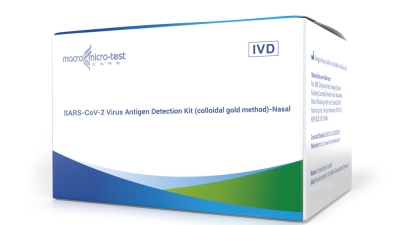Solutions for Effective Dengue Test Antigen Procurement Management
Table of Contents
- Best Practices for Sourcing Dengue Test Antigens in Healthcare Settings
- Strategies to Optimize Supply Chain for Dengue Antigen Procurement
- Key Considerations for Selecting Reliable Suppliers of Dengue Tests
- Collaborative Approaches to Enhance Dengue Antigen Acquisition Efficiency
- Innovative Technologies Supporting Dengue Test Antigen Procurement Management
- Understanding the Importance of Home Testing: A Deep Dive into SARS-CoV-2 Virus Antigen Tests
- FAQS
- Conclusion
- Related Posts
Hey, have you noticed how dengue fever is becoming more and more common around the world? It’s really throwing a wrench into public health efforts, especially when it comes to managing how we get our Dengue Test Antigen supplies. The World Health Organization estimates there are around 390 million cases of dengue each year—that’s a huge number, and it definitely shows we need better and more reliable ways to diagnose this disease quickly.

One company, Jiangsu Macro & Micro-Test Med-Tech Co., Ltd., started back in 2010, and they’ve really stepped up as a major player in this space. They’re using innovative tech and strong manufacturing skills to improve detection methods. By working out smart procurement strategies, health organizations can make sure these vital diagnostic tools are available when needed—meaning quicker diagnoses and more effective control of the disease.
In this blog, I’ll walk you through some solutions to make the whole procurement process smoother, so we can fight the dengue epidemic more effectively with the resources we need, right when we need them.
Best Practices for Sourcing Dengue Test Antigens in Healthcare Settings
When it comes to healthcare, getting the right dengue test antigens isn’t just about ticking boxes — it’s about being strategic so everything lines up perfectly, especially when it’s crunch time. One of the smartest moves? Building solid relationships with trustworthy suppliers. Working closely with manufacturers who stick to high-quality standards means you’re more likely to get consistent, reliable antigens that you can count on. Staying in touch regularly with your suppliers is also key — it helps you understand their production processes better and anticipate your needs, especially during those busy seasonal outbreaks.
Another thing to keep in mind is doing your homework by exploring different suppliers. Relying on just one source can be risky — supply chain hiccups due to politics or sudden spikes in demand during outbreaks can really throw things off. Plus, using tech tools like inventory management systems can make all this easier. These systems give you real-time info on your stock levels and how fast you're using supplies, so you can stay ahead and ensure your facility always has enough dengue test antigens on hand. In the end, it’s all about keeping the process smooth so patients get the best care possible.
Strategies to Optimize Supply Chain for Dengue Antigen Procurement
Getting the procurement of dengue test antigens right is super important if we want to keep those outbreaks in check. Honestly, one of the biggest game-changers is using data-driven strategies to keep the supply chain on point. The World Health Organization estimates there are around 390 million dengue infections every year—that’s a huge demand for quick and reliable tests. By tapping into predictive analytics, health teams can better anticipate when they'll need more supplies, which means fewer stockouts or overstocking issues. It’s all about staying one step ahead.
Also, working closely with manufacturers and suppliers is key. Building solid, long-term relationships can really boost your negotiating power and make sure the supply keeps flowing smoothly. Oh, and integrating new tech like blockchain? It might sound fancy, but it’s pretty useful—helps improve transparency and traceability, so you’re less likely to run into fake or subpar products. By investing in these smarter procurement tactics, health authorities can ensure they get the dengue test antigens they need, right when they need them. That, in turn, helps them respond faster and manage the disease more effectively.
Key Considerations for Selecting Reliable Suppliers of Dengue Tests
 When you're handling dengue test antigen supplies, finding reliable vendors is super important—because, let's face it, you want results that are both accurate and quick. A good starting point is to check if the supplier has the right certifications and follows high-quality standards. The manufacturers who stick to international quality protocols usually produce better test kits, and you can be more confident they'll work well even in different conditions.
When you're handling dengue test antigen supplies, finding reliable vendors is super important—because, let's face it, you want results that are both accurate and quick. A good starting point is to check if the supplier has the right certifications and follows high-quality standards. The manufacturers who stick to international quality protocols usually produce better test kits, and you can be more confident they'll work well even in different conditions.
A handy tip? Always ask for recent certificates and inspection reports—that’s a great way to get a feel for how credible they are. Plus, it’s worth digging into their history—do they consistently deliver quality products? And can they handle urgent orders when things get hectic?
Another thing to keep in mind is whether they offer a variety of testing options. Having a supplier who can provide different types of dengue diagnostic tools makes your life way easier and keeps your options open. Don’t forget to see if they offer support too—such as training on how to use the tests or updates on new developments.
Pro tip: Trying out a small order first can really give you a sense of how responsive they are and whether their products meet your standards. It’s a good way to avoid surprises later on and build a solid foundation for the bigger stuff down the line.
Collaborative Approaches to Enhance Dengue Antigen Acquisition Efficiency
When it comes to tackling dengue fever, one thing that's really clear is how crucial efficient procurement of dengue test antigens is. You know, working together with different healthcare stakeholders can make a huge difference—it’s all about collaboration to get these vital resources more smoothly and quickly. According to a report from the WHO, dengue cases have skyrocketed in recent years, hitting around 390 million infections each year. That’s a huge alert—that we really need fast, reliable testing options. By building partnerships between public health groups, private suppliers, and research institutions, we can cut down on the hassle and make sure these antigens are not just available but also affordable.
Oh, and here’s a good tip—creating a shared platform where everyone can exchange info would really bump up transparency. It helps stakeholders see demand trends ahead of time so nothing gets left behind.
Using technology in our procurement game plan can also be a total game-changer. For example, data analytics can help predict outbreaks and keep inventory levels just right—so test kits are on hand exactly when and where they’re needed most. A study from 2022 mentioned that organizations that started using such tech saw around a 30% drop in the time it takes to get their test kits.
And one more thing—regularly checking how suppliers perform can really streamline the whole process and build stronger, more dependable relationships, which in the end makes procurement way more efficient.
Comparison of Dengue Test Antigen Procurement Efficiency (2023)
Innovative Technologies Supporting Dengue Test Antigen Procurement Management
When it comes to fighting dengue fever, having quick and reliable access to test antigens is absolutely key. The faster we can diagnose, the better we can manage and control outbreaks. These days, new tech is really helping streamline how we get those antigens. According to the World Health Organization, dengue cases have skyrocketed—think about it, around 390 million infections every year! That huge jump just highlights how important it is to have solid systems in place to ensure we always have quality testing kits ready to go.
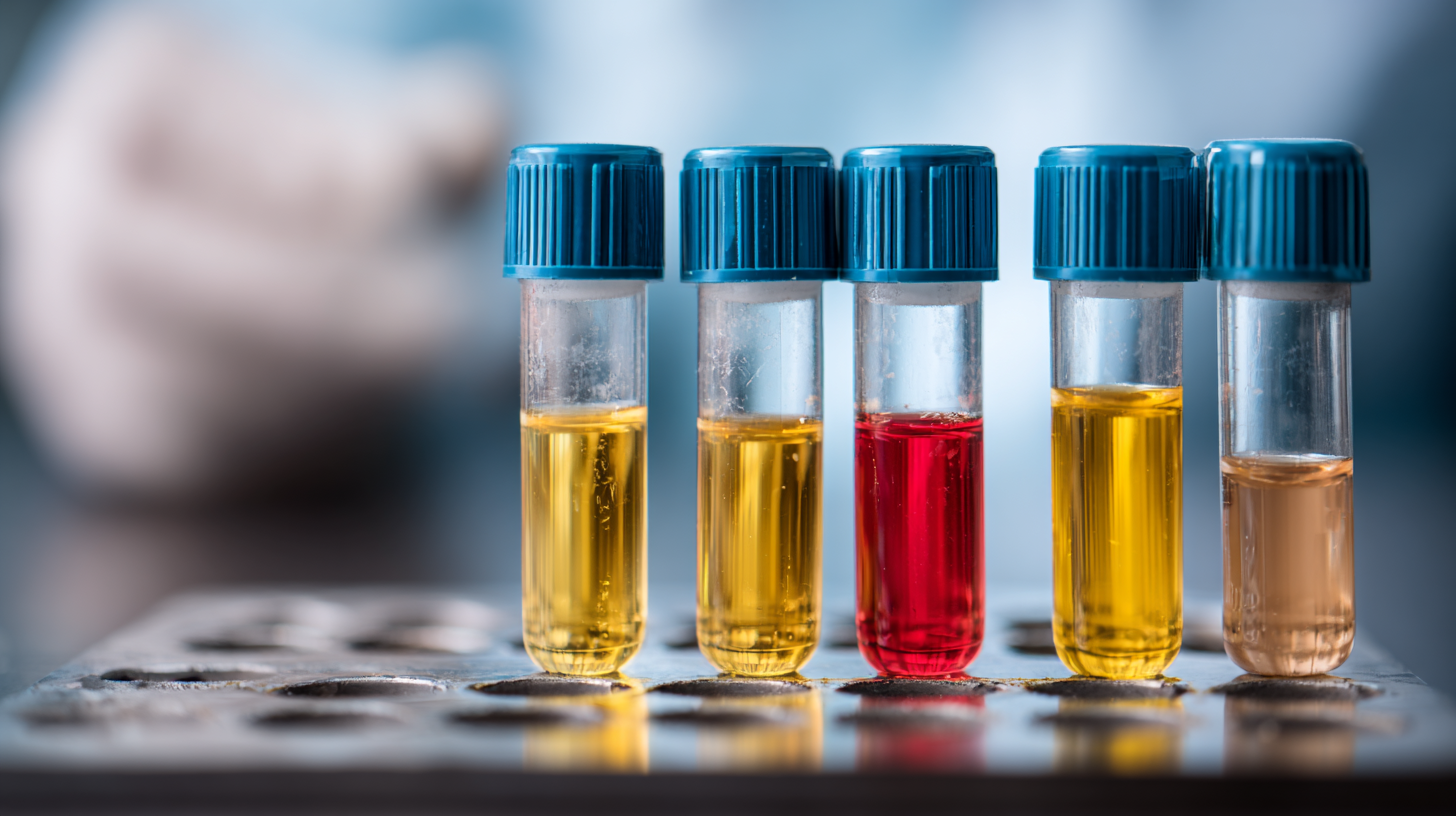
Now, something pretty exciting happening in this space is how artificial intelligence and blockchain are starting to shake things up in healthcare procurement. For example, AI tools can analyze seasonal and regional data to predict how many test kits will be needed, which helps prevent running out of stock or wasting supplies that aren’t needed. Plus, blockchain adds a layer of transparency—everyone from suppliers to health officials can see exactly where the tests are coming from and verify their quality in real time.
Tip 1: Work closely with local health authorities—by syncing your procurement plans with regional dengue trends, you can make sure testing is available when it’s needed most.
Tip 2: Make sure your team is up-to-date on the latest tech. Training on these tools can really help make smarter decisions and get the most out of the data.
Tip 3: Build strong relationships with dependable suppliers. That way, you’re more likely to keep a steady supply of good-quality test antigens without interruptions or hiccups.
Understanding the Importance of Home Testing: A Deep Dive into SARS-CoV-2 Virus Antigen Tests
Understanding the Importance of Home Testing: A Deep Dive into SARS-CoV-2 Virus Antigen Tests
The COVID-19 pandemic has underscored the critical need for efficient and accessible testing solutions, especially within the realm of home testing. The SARS-CoV-2 virus antigen tests, specifically designed for in vitro qualitative detection of the virus from nasal swab samples, have emerged as a pivotal tool for individuals seeking quick and reliable results. Research indicates that early detection through antigen testing can significantly mitigate the spread of the virus, particularly in asymptomatic individuals who may otherwise remain untested.
Targeted for individuals aged 15 and older, the home testing kit empowers users to self-collect anterior nasal swab samples. This approach not only enhances convenience but also encourages testing among people who may fear visiting healthcare facilities. According to a recent study published in the Journal of Clinical Microbiology, rapid identification of positive cases through antigen tests can lower transmission rates and facilitate timely isolation measures. The ability for adults to collect samples from younger individuals further broadens the scope of detection, crucial in households with children where virus exposure may go unnoticed.
Data from the Centers for Disease Control and Prevention (CDC) reveal that timely home testing results can inform personal and community health decisions. With non-prescription availability and user-friendly instructions, these tests are pivotal in fostering a culture of proactive healthcare, allowing individuals to contribute to controlling the pandemic effectively. The aging population and increased travel further emphasize the necessity for accessible and immediate testing solutions, making at-home antigen tests an indispensable component of ongoing public health strategies.
FAQS
: Selecting reliable suppliers is essential for ensuring accurate and timely results in dengue test antigen procurement, as quality assurance leads to better testing kits and effective product performance.
Always request recent certifications and inspection reports to establish the supplier’s credibility and ensure they adhere to international quality standards.
A supplier that offers a versatile range of dengue diagnostics helps maintain adaptability in procurement strategies, allowing for better response to varying testing needs.
It’s important for suppliers to offer comprehensive support, including training on product use and timely updates on test developments.
Engaging with suppliers through trial purchases can provide insight into their responsiveness and product quality, clarifying concerns before making larger commitments.
Innovative technologies, like AI and blockchain, optimize procurement processes by predicting demand and enhancing supply chain transparency.
AI-driven analytics predict demand based on seasonal and regional trends, minimizing stockouts and reducing waste in antigen supply.
Collaborating with local health authorities aligns procurement strategies with regional dengue trends, ensuring timely testing capabilities.
Training procurement teams in the latest technologies optimizes decision-making processes and empowers them to leverage data effectively for better procurement outcomes.
Establishing partnerships with reliable suppliers ensures consistent access to high-quality test antigens, minimizing potential service delivery interruptions.
Conclusion
When it comes to fighting dengue fever, managing the procurement of Dengue Test Antigens is a pretty big deal for healthcare settings. Basically, the key is building good relationships with trustworthy suppliers who really understand the quirks and challenges of the healthcare world. To keep the supply chain smooth and reliable, it helps to use technology — think streamlining processes, making sure deliveries arrive on time, and keeping quality in check.
Teamwork among different stakeholders can make a huge difference too. When everyone shares resources and knowledge, things tend to run more efficiently. And let’s not forget about tech companies like Jiangsu Macro & Micro-Test Med-Tech Co., Ltd., who are really pushing the envelope with their advanced diagnostic reagents. Their innovations are pretty critical when it comes to solving procurement headaches. By focusing on these areas, healthcare providers can stay ready and equipped to diagnose and handle dengue outbreaks more effectively.
Related Posts
-
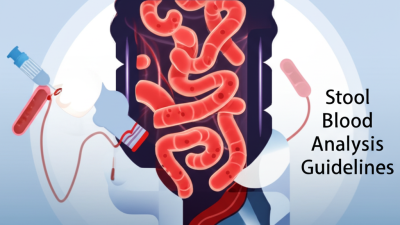
Step-by-Step Guide to Understanding H Pylori Testing: Stool vs. Blood Analysis
-
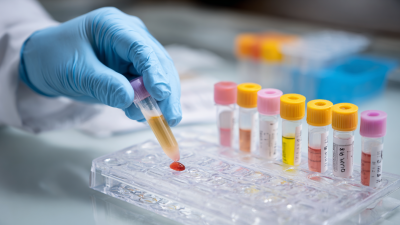
The Future of Rapid Testing Solutions for Malaria Wholesale Suppliers
-

Solutions for Effective Detection of Helicobacter Pylori with Innovative Testing Kits
-
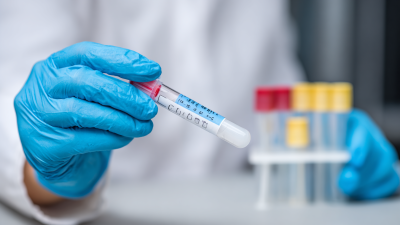
5 Key Benefits of Using Influenza A&B Test for Early Diagnosis
-

The Future of Best tt3 Innovations in Efficiency and Performance
-
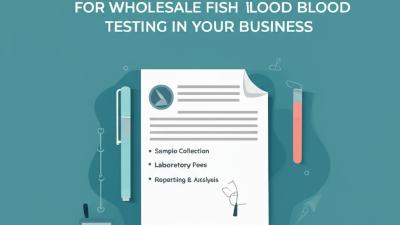
Understanding the Cost Factors for Wholesale Fish Blood Testing in Your Business


